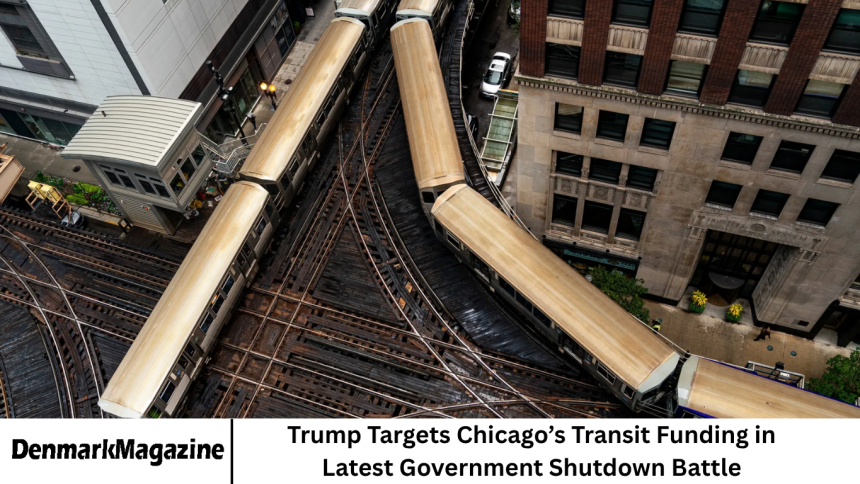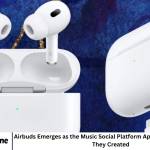In a move that has reignited tensions in Washington, former President Donald Trump has set his sights on Chicago’s transit funding as part of his latest salvo in the ongoing government shutdown battle. The standoff, which has already brought portions of the federal government to a grinding halt, is now spilling over into infrastructure and transportation budgets.
- The Background: How the Shutdown Began
- Trump’s Move Against Chicago’s Transit System
- Chicago Leaders React: ‘A Direct Attack on Working Families’
- Republican Defense: ‘Fiscal Responsibility and Priorities’
- Economic Fallout: The Cost of Political Gamesmanship
- The Shutdown’s Broader Political Stakes
- Public Opinion: Divided Along Familiar Lines
- The Legal and Legislative Battle Ahead
- Trump’s Broader Strategy: A Preview of Campaign Tactics
- The Human Impact: Stories from Chicago’s Commuters
- Frequently Asked Question
- Conclusion
Trump’s demand to freeze or redirect federal funds earmarked for Chicago’s public transit system has sparked outrage among Democrats, city officials, and labor unions, while conservatives hail the move as a bold step toward fiscal discipline and political leverage.
As the shutdown drags into its third week, the debate has evolved beyond a question of government spending. It has become a symbol of the deep partisan divide in the United States — one that pits urban and rural America against each other, and federal priorities against local needs.
More Read: Global Reactions Pour In to Hamas’s Response to Trump’s Gaza Peace Plan
The Background: How the Shutdown Began
The current government shutdown is the latest in a series of political deadlocks that have plagued Washington over the past decade. The dispute began when Congress failed to pass a comprehensive spending bill by the September deadline, triggering an automatic lapse in funding for key government agencies.
Republicans, led by Trump and his allies in Congress, demanded deep cuts to domestic spending — particularly in areas they view as wasteful or politically biased. Democrats, on the other hand, sought to protect social programs, environmental funding, and infrastructure projects that they argue are essential to economic stability and quality of life.
When negotiations stalled, Trump seized on the opportunity to use the crisis as leverage. He called for a reassessment of how federal funds are distributed to cities like Chicago, which he accused of “chronic mismanagement” and “anti-law enforcement policies.”
His rhetoric echoed his years-long critique of Democratic-led cities, particularly those struggling with crime, poverty, and homelessness.
Trump’s Move Against Chicago’s Transit System
Trump’s latest move involves targeting federal grants that support Chicago’s vast transit network — including the Chicago Transit Authority (CTA), Metra, and Pace suburban bus systems. These funds are crucial for maintaining public transportation infrastructure, expanding services, and covering operational costs for millions of commuters.
According to White House insiders, Trump instructed allies in Congress to block or delay transit funding in upcoming spending packages unless Democrats agree to broader cuts in discretionary spending. The former president also proposed redirecting some of those funds toward “border security and public safety initiatives” — priorities that resonate strongly with his base but have little connection to transit infrastructure.
In a speech delivered to supporters in Ohio, Trump justified his stance by saying, “Why should hardworking Americans in Ohio, Texas, or Florida be paying for Chicago’s problems when that city refuses to fix itself? It’s time for accountability. No more blank checks for failed leadership.”
The comments drew immediate backlash from Chicago officials, who accused Trump of using the city as a political punching bag.
Chicago Leaders React: ‘A Direct Attack on Working Families’
Chicago Mayor Brandon Johnson condemned Trump’s proposal as “a direct attack on working families who depend on affordable, reliable transportation.” In a press conference, Johnson stated that nearly 60% of CTA riders earn less than $50,000 per year and that cutting transit funding would “cripple the economic mobility of thousands of Chicagoans.”
Illinois Governor J.B. Pritzker joined in the criticism, calling the move “reckless and vindictive.” He argued that infrastructure funding should never be used as a political weapon, warning that withholding federal dollars could undermine not only Chicago’s economy but also regional commerce throughout the Midwest.
Public transit unions, meanwhile, have vowed to fight back through legal and political channels. The Amalgamated Transit Union (ATU) and Transport Workers Union (TWU) issued joint statements accusing Trump of “punishing essential workers” and “jeopardizing public safety.”
“This isn’t about politics — it’s about people who depend on buses and trains to get to work, school, and hospitals,” the unions said in their statement.
Republican Defense: ‘Fiscal Responsibility and Priorities’
While Democrats denounced the move as cruel and politically motivated, Republicans defended it as a necessary measure to restore fiscal responsibility. House Speaker Mike Johnson said that Trump’s proposal “reflects the need to reexamine federal spending priorities” at a time when the national debt is nearing historic highs.
“Every dollar must serve the national interest,” Johnson said, “and that means we can’t keep writing blank checks to cities that mismanage their funds.” Senator Ted Cruz echoed those sentiments, claiming that Chicago “has long been a symbol of failed Democratic policies” and that federal funding should be tied to “law and order.”
Some conservative analysts argue that Trump’s move is part of a larger strategy to reposition the GOP as the party of fiscal conservatism — even if that means targeting Democratic strongholds. By cutting funding to liberal cities, they say, Trump aims to highlight what he sees as “urban dependency” on federal dollars.
Economic Fallout: The Cost of Political Gamesmanship
Experts warn that the economic fallout from Trump’s strategy could be significant. Chicago’s transit system serves nearly two million riders per weekday and plays a central role in the region’s economy. A reduction in federal funding could lead to fare hikes, service cuts, layoffs, and delayed infrastructure projects.
Transportation economist Dr. Lisa Franklin from Northwestern University said the move could have a ripple effect far beyond Chicago: “Public transit isn’t just a local issue. It’s tied to national supply chains, job markets, and environmental goals. If the federal government starts weaponizing transit funding, we’ll see instability across the country.”
The uncertainty has already rattled markets. Several construction firms and engineering companies involved in federally funded transit projects have reported delays in contract approvals.
Additionally, the credit rating agency Fitch warned that prolonged funding disputes could affect municipal bond ratings for cities heavily reliant on federal infrastructure support.
The Shutdown’s Broader Political Stakes
As the shutdown continues, both sides are using the standoff to rally their bases. Trump and Republican leaders are portraying themselves as defenders of taxpayer money, while Democrats are framing the fight as a battle for working-class Americans and public services.
Political analysts say Trump’s targeting of Chicago serves a dual purpose. It reinforces his “law and order” narrative while also forcing Democrats to defend a city that Republicans often depict as a symbol of urban decline.
Dr. Michael Hanley, a political scientist at Georgetown University, said: “Chicago has always been a convenient foil for Trump. By framing the city as an example of Democratic failure, he strengthens his populist message — even if it means hurting millions of ordinary citizens in the process.”
The shutdown battle is also seen as a test of political will ahead of the 2026 midterm elections. Both parties are using the crisis to define their economic platforms and measure public tolerance for brinkmanship.
Public Opinion: Divided Along Familiar Lines
Polls show that public opinion on the shutdown and Trump’s targeting of Chicago remains sharply divided. A recent Pew Research Center survey found that 56% of Americans blame Republicans for the shutdown, while 39% blame Democrats. However, among Republican voters, 72% support Trump’s effort to “reallocate wasteful urban funding.”
In Chicago itself, public outrage is palpable. Commuters interviewed by local news outlets expressed frustration and fear that their daily lives would be disrupted. “I rely on the train to get to work,” said one CTA rider. “If they cut service or raise fares, I don’t know how I’ll manage.”
Business leaders have also sounded the alarm. The Chicagoland Chamber of Commerce urged federal lawmakers to resolve the standoff, warning that “economic uncertainty and transportation disruptions could derail the city’s post-pandemic recovery.”
The Legal and Legislative Battle Ahead
Democrats in Congress are preparing to fight back through legislative means. Several lawmakers from Illinois, including Senators Dick Durbin and Tammy Duckworth, have introduced measures to protect transit funding from political interference.
Meanwhile, the Department of Transportation (DOT) is reportedly exploring whether Trump’s proposal would violate existing federal grant agreements or transportation statutes. Under current law, cities are entitled to certain funding allocations based on population and ridership metrics — not political discretion.
If the dispute escalates, it could end up in federal court, with Chicago and other affected cities suing the federal government for withholding funds unlawfully.
Trump’s Broader Strategy: A Preview of Campaign Tactics
Many observers see Trump’s move as part of a larger campaign strategy ahead of the next presidential race. By reigniting battles over urban governance, immigration, and fiscal responsibility, Trump is appealing to his core voters while forcing Democrats to defend unpopular spending programs.
Political strategist Sarah Collins explained:
“Trump understands the power of symbolism. Targeting Chicago isn’t just about money — it’s about shaping the narrative. It’s about showing his base that he’s willing to take on what he calls the ‘liberal establishment.’”
This kind of political theater, while risky, has historically worked in Trump’s favor. It energizes his supporters, dominates the media cycle, and puts pressure on his rivals to respond.
The Human Impact: Stories from Chicago’s Commuters
Beyond the politics, the shutdown is taking a real toll on ordinary Chicagoans. Bus drivers, maintenance workers, and station attendants fear losing paychecks if federal subsidies are delayed. Riders are anxious about potential cuts to routes or increases in fares.
For residents of low-income neighborhoods on the South and West sides, public transportation is a lifeline. Community organizers warn that losing funding could deepen existing inequalities. “This isn’t just about trains — it’s about access,” said local activist Mariah Jenkins.
“People depend on public transit to get to jobs, schools, and hospitals. Taking that away is taking away opportunity.” Environmental advocates also point out that cutting transit funding could push more commuters toward car use, worsening traffic congestion and air pollution in one of the nation’s largest metropolitan areas.
Frequently Asked Question
Why is Trump targeting Chicago’s transit funding?
Trump argues that Chicago has mismanaged its finances and failed to address crime and infrastructure issues. He believes federal funds should be redirected to other priorities, such as border security and rural development.
How much federal funding is at stake for Chicago’s transit system?
The Chicago Transit Authority and related systems receive approximately $1.5 billion annually in federal support for operations and infrastructure. Losing this funding would severely impact services and maintenance.
How does this relate to the government shutdown?
The funding freeze is part of Trump’s broader effort to pressure Democrats during the government shutdown negotiations. He’s using Chicago’s transit budget as leverage to demand deeper spending cuts.
What are local officials saying about the proposal?
Mayor Brandon Johnson and Governor J.B. Pritzker have denounced Trump’s move as politically motivated and harmful to working-class residents who rely on public transit.
Could this lead to legal action?
Yes. If the federal government withholds funds that have already been allocated by law, Chicago could sue under the Federal Transit Act or challenge the decision as unconstitutional.
What are the economic risks of cutting transit funding?
Reduced funding could lead to service cuts, fare hikes, job losses, and delays in infrastructure projects. It may also hurt local businesses and increase economic inequality.
What does this mean for the broader U.S. political landscape?
The move highlights growing polarization in U.S. politics and sets the stage for future battles over how federal resources are distributed — especially between red and blue states.
Conclusion
The battle over Chicago’s transit funding encapsulates the dysfunction of modern American politics. What began as a dispute over spending priorities has spiraled into a full-blown crisis that threatens not just the nation’s finances but also the daily lives of millions.
Trump’s decision to target Chicago is both a calculated political maneuver and a reminder of how deeply partisan divisions now shape policymaking. Whether or not his strategy succeeds, the damage to public trust and infrastructure stability could take years to repair.







